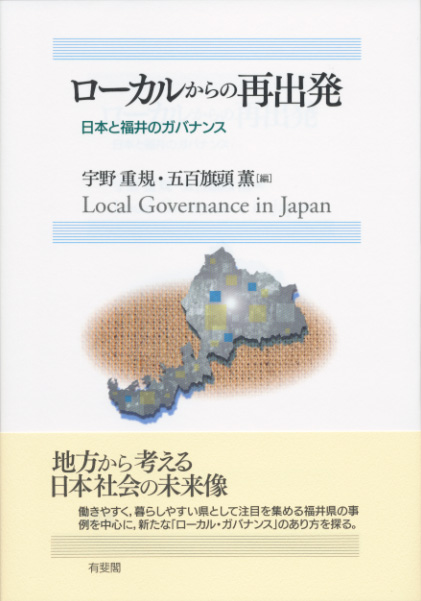
Title
Gendai Chihōjichi no Hōtekikisō (Legal Substratum/Foundations of Modern Local Government)
Size
570 pages, A5 format, hardcover
Language
Japanese
Released
December 15, 2012
ISBN
978-4-641-13106-4
Published by
Yuhikaku Publishing
Book Info
See Book Availability at Library
Japanese Page
Residents are familiar with the serious problem of dysfunction in local governments, whose control should actually be extended, as was the case with the Toyama city assembly members’ diversion of political activity funds and the land-building of the Toyosu market. Conflicts involving disputes with local governments are also intensifying, such as lawsuits between Okinawa prefecture and the central government regarding the relocation of the Futenma base to Henoko and conflicts among residents with regard to nursery locations in various areas.
Traditionally, in public law, however, the study of legal problems related to local autonomy would be placed in a corner. In constitutional law, whether human rights theory or governance theory, the legislative, judicial, and administrative actions of the country are the targets of consideration; administrative law, especially since the beginning of the twenty-first century, focuses on handling technical problems in administrative lawsuits.
Amidst these circumstances, I have been promoting legal consideration of local autonomy and decentralization founded on basic theory since I first began working as a researcher. As a culmination of my research, I collected papers I had written between 1994 and 2010, reflected on trends in practice and theory since then, and published this book aiming for a moderate systematization.
Somehow, faced with a volume exceeding 500 pages and a traditional style of vertical text and only one chart, those who are used to thin, multicolored print, politely appealing modern textbooks might resist selecting this book. Despite this risk, it should nonetheless be a guide for serious thinking regarding Japanese local autonomy.
In Chapter 1, “Foundations of History,” I encourage readers to note the continuous and discontinuous aspects of pre- and post-war systems and the theory of local autonomy, and in Chapter 2, “Foundations of the Constitution,” I discuss local autonomy premised on the constitution and the relationship between regulatory reform and decentralization. In Chapter 3, “Foundations and Development of Local Government Legislation,” I discuss codes and ordinances, which are the basic tools for local governments to implement their own policies, providing specifics focusing on changes based on the second revision of decentralization reform from the central government and its constraints and the future prospects and negative impacts of globalization. In Chapter 4, “Foundations of Legal Policy,” I emphasize institutional design, such as the relationship between environmental policy and decentralization and the formation of new local autonomous organizations through resident participation.
Although these discussions mainly assume that readers are researchers and practitioners, I have also interwoven familiar material such as evaluations of unique ordinances and experiences of residents voting for city tramlines in Germany, and therefore, I would be grateful if readers began reading from whichever topic they are interested in and received some inspiration to begin thinking themselves about the current problems noted in the beginning.
(Written by SAITO Makoto, Professor, Graduate Schools for Law and Politics / 2018)



 Find a book
Find a book





